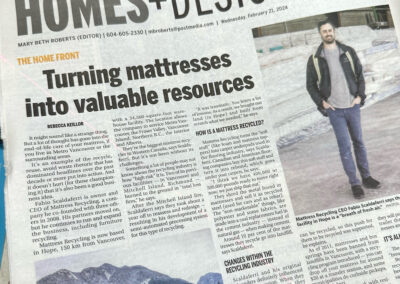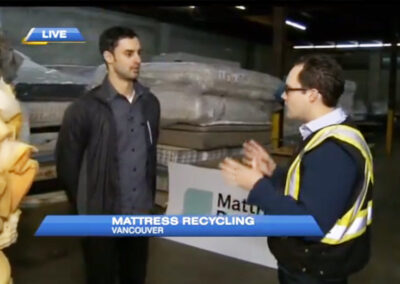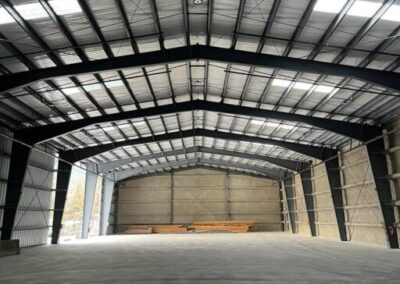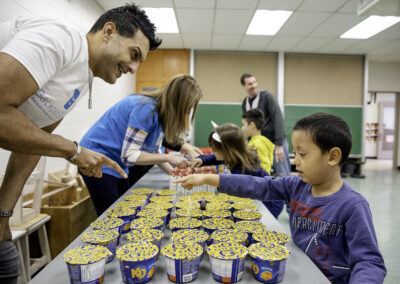It’s been two years since Mattress Recycling and Backpack Buddies started bringing bags of food to children of Hope, Agassiz and Boston Bar
When we first moved our mattress recycling facility to Hope, BC, we were focused on expanding our recycling service network from our new, central location. We soon realized we were also perfectly positioned to assist Backpack Buddies, which is an incredible Vancouver charity that brings food security to schoolchildren in need.
The Backpack Buddies program was started in 2012 by mother-daughter duo Joanne Griffiths and Emily-anne King. It partners with schools and social workers to identify children who could benefit most from receiving a no-questions-asked bag of food for the weekend.
The Backpack Buddies trucks were already driving through Metro Vancouver and Vancouver Island delivering bags of food to schools every Friday morning. They knew from their research, however, that there were many hungry children in need at the far end of the Fraser Valley—in Hope and beyond. Unfortunately, they had no trucks available to cover the weekly 350 km round-trip.
In 2021, Mattress Recycling owner Fabio Scaldaferri learned through a Hope resident that there was a real need for an additional food program in the region. With the cost of living constantly going up and the pandemic forcing even the most connected communities into isolation, the need was also growing. Scaldaferri was already familiar with the work of Backpack Buddies, so he reached out to see if they had plans to service Hope, and offered to use his recycling trucking route to bridge the gap.
Mattress Recycling’s five tonne truck drives the Number One Highway every week picking up recycling from a major retailer. It was easy to add 200 bags of food from the Backpack Buddies van on its way back.

A sample Backpack Buddies bag.
What’s inside the bags?
Backpack Buddies explains that the food they provide is always:
- Ready to Eat: because many of the kids are home alone and will have to prepare this food by themselves, often with very limited access to a microwave, stove or oven.
- Non-perishable: because often kids do not have working refrigerators or appropriate food storage space at home.
- Familiar: because kids are not particularly adventurous in their eating habits – they like and eat what they know.
When the food arrives in Hope, we take it over to the Hope Food Bank. Then, on Friday, a team comprised of Mattress Recycling staff, the Hope & Area Transition Society, Hope Community Services, Fraser Cascade School District No. 78, and Fraser Health delivers it to the schools to be discreetly given to kids before they head home for the weekend.
Child hunger is in every community
As a regular supporter of community initiatives, Scaldaferri cares deeply about child hunger. “I can’t stand the idea of kids being hungry,” the father-of-three explains in this interview. “Using my business to help the community we work in just makes sense to me.”

Mattress Recycling and Backback Buddies deliver 200 bags of food to the Hope Food Bank each week.
Speaking with Vancouver is Awesome about the new route, Backpack Buddies cofounder Emily-anne King points out that child hunger exists in every community. BC has one of the highest child poverty rates in the country, with 20 percent of children living below the poverty line. “Pre-pandemic we were looking at a statistic of one in five kids living in food insecurity in BC. And the Breakfast Club of Canada, along with Stats Canada, has conducted some research since the start of the pandemic and they’re estimating that to be as many as one in three kids now.”
Thankfully the pandemic has eased, but the need is still strong. It’s now been just over two years since we started this partnership—that’s roughly 14,000 bags of food so far! And we’re always thrilled to see the bags of food arriving, knowing that 200 children in need will have happy bellies that weekend.
Want to get involved with Backpack Buddies? Learn more here.
Photo credits: Backpack Buddies, VIA



